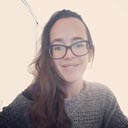
ICAPGen, the International Commission for the Accreditation of Professional Genealogists is a nonprofit organization that helps people around the world accredit and show competency in specific genealogical research areas. In this interview, ICAPGen President Brandon Baird illustrates the job of a genealogist and stresses the importance of proper accreditation in the field.
What is the role of a genealogist, and what are ICAPGen’s requirements for accrediting a genealogist?
When someone is accredited by ICAPGen, it means they have demonstrated knowledge in key areas like history, geography, methodologies, and language of the regions that they’re interested in. They know how to access those records. They either had experience through onsite research, they’ve corresponded with repositories or even set people there, but they know how to access the records, even if they’re not accessible online.
They have to show that they can transcribe and translate documents in a different language other than English, abstract handwritten documents, analyze and interpret evidence, and communicate research qualities within written reports.
The testing process itself comprises three levels. On the first level, you submit the four-generation project where an individual has researched a family for four generations, finding all the genealogical information about them including birth, marriage, and death of all the children, and they create a written report to support that. The report also includes research logs, documents, anything you would expect to receive as a client.
After they pass level one, they then move on to level two, which is a four-hour exam where they are given documents to analyze, transcribe, translate, abstract, create research plans, identify key information in the records, and be able to identify the documents. They also have to show proficiency and general knowledge of things that affect records like geography and history, and create research plans for theoretical projects.
After they passed that level, they have to do a smaller research project where we give them a research problem and objective, and they have to go and complete that within a four-hour time limit, supplying documents, family group records, pedigree charts, group search report, and a research log within four hours.
After the individual accredits, it’s up to them what they decide to do. Some people work in archives, some people work in places like the Family History Library, some work for Ancestry or Legacy Tree Genealogists, or do their own private research. Their ICAPGen accreditation comes to show that they are proficient in a specific area of genealogy. After that, they go on and do what they want.
What are some current ethical dilemmas around genealogy research, and how does ICAPGen approach them?
The main ethical challenge is that people struggle to know if a person is actually good at research. There is no standard or anything that requires a professional genealogist to have any sort of credentialing, background, or proof that they have the experience and knowledge necessary to receive money for their services. Any individual who accredits through us goes through a rigorous process where they have to prove that they have the necessary knowledge to receive accreditation.
One of the issues of genealogy is you’re not always going to be successful. Even if you know everything about a certain area, there’s no guarantee that you’re going to find the required information, because it may not be available or the records may have been destroyed.
With our credentialing, we’re able to back them up and help show the public that these individuals know what they are talking about because they passed our rigorous tests. We’re able to give that confidence to both the client and the researcher.
In some cases, we work as a mediator between a professional and their client to help them overcome disputes. Of course, we only do this with genealogists who are accredited through us.
What are some trends or technologies that you find intriguing these days around your line of work?
DNA is becoming very prominent. One shortcoming of ICAPGen currently is that we don’t have any reference to DNA. We are working on incorporating DNA into the organization, but there are some ethical dilemmas with DNA and privacy that we haven’t quite figured out how to best resolve, so we’re still working on that.
Another trend that I’ve seen recently is an increased interest in genealogy. More people are wanting to research their families and are willing to pay a genealogist to do it for them. I do find that very interesting. I don’t have any numbers to show but personally, in the last few months, I’ve received a lot more requests for personal research than I have in previous years.
How do you envision the future of genealogy as a professional field?
I believe that there will be a greater need for proof of competency in research, whether it be through showing that they’re competent in a particular region with ICAPGen or through other credentialing bodies that exist not only in the US but around the world.
We have a large network of individuals who are showing this proficiency level. Recently, we have been getting more international researchers taking our accreditation exam, and I expect that to increase.
As a professional genealogist, I believe that there is a greater need for people to show that they have the professional expertise, as it gives more confidence to both the client and the genealogist.

